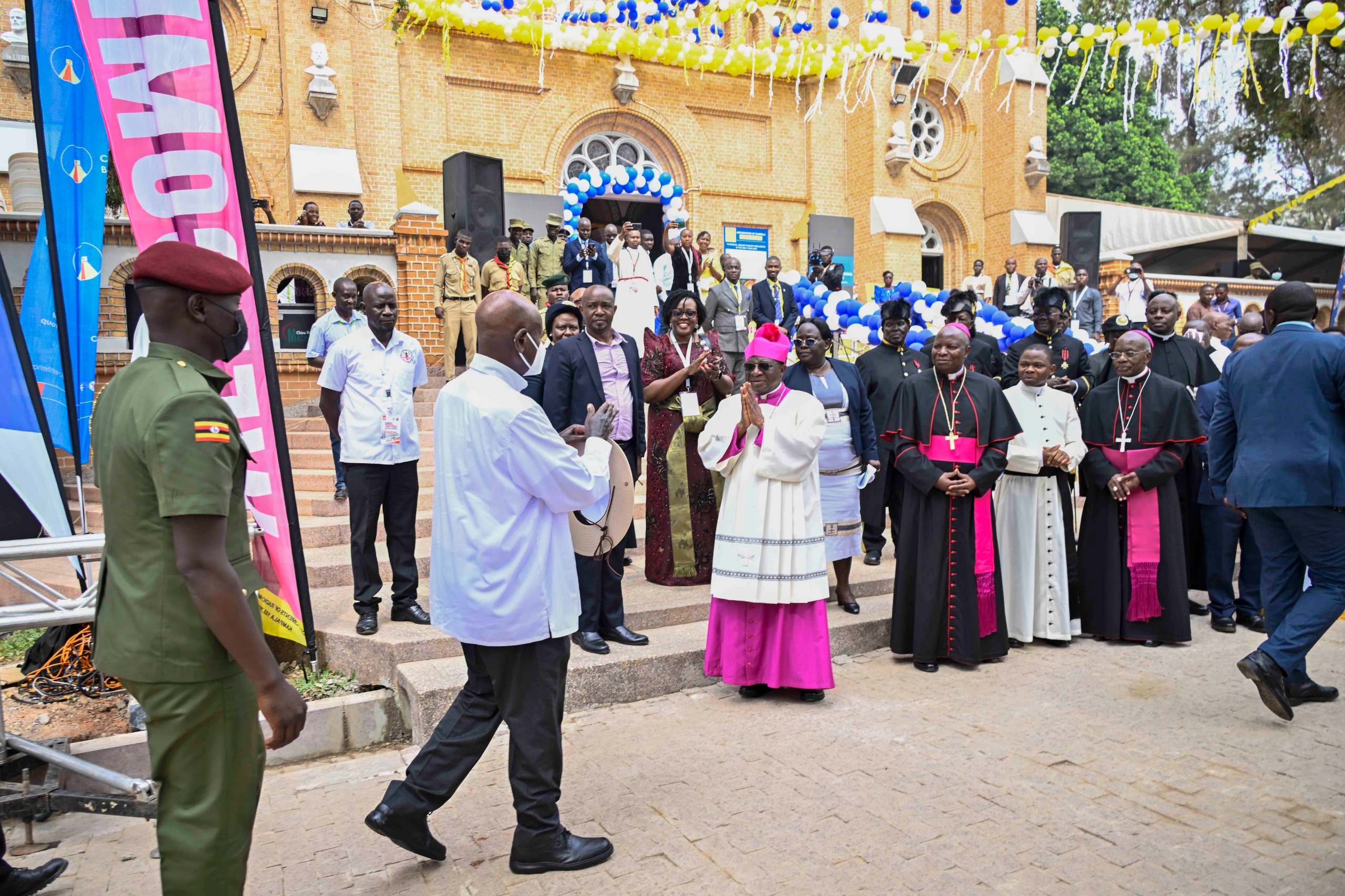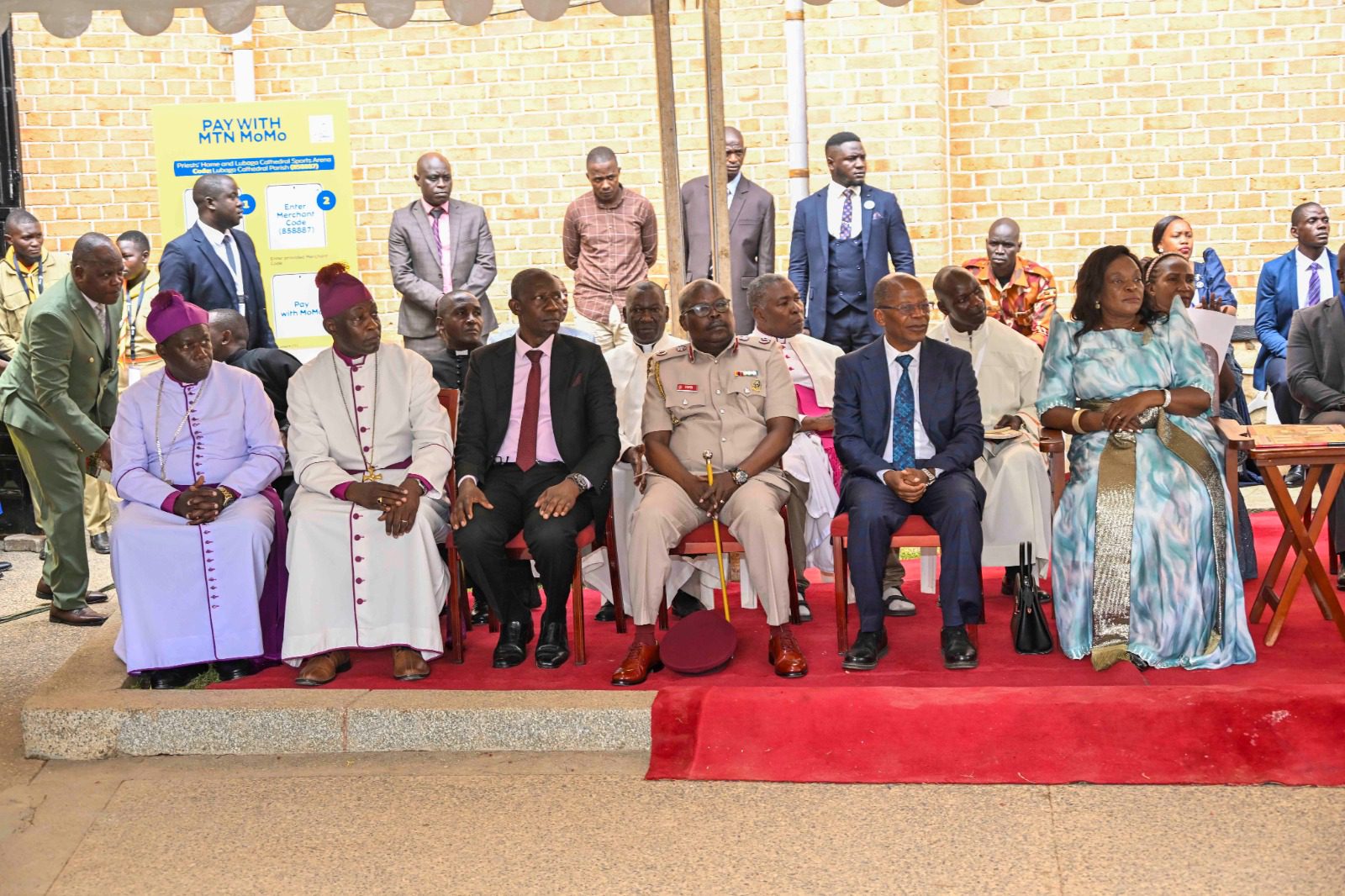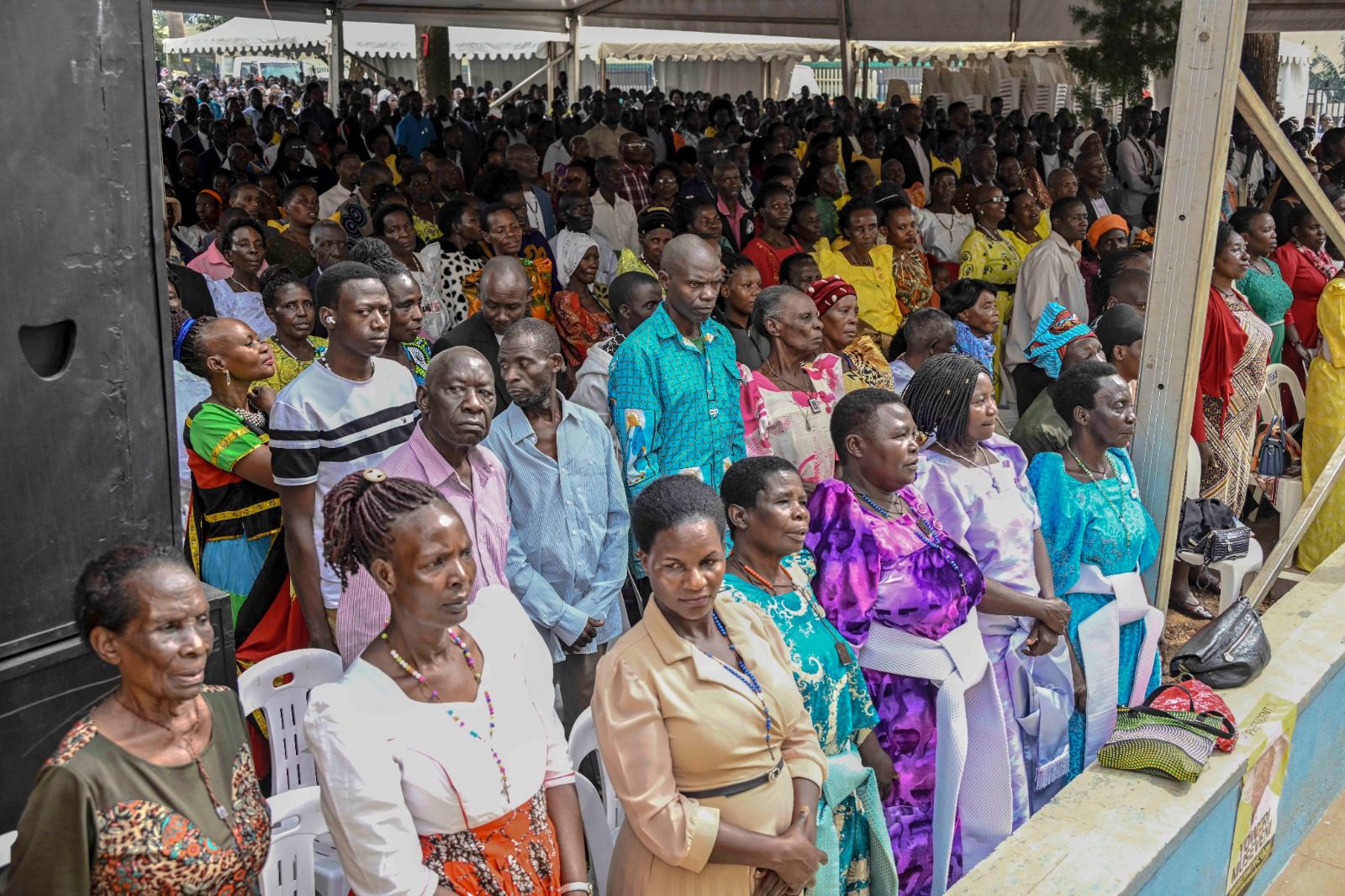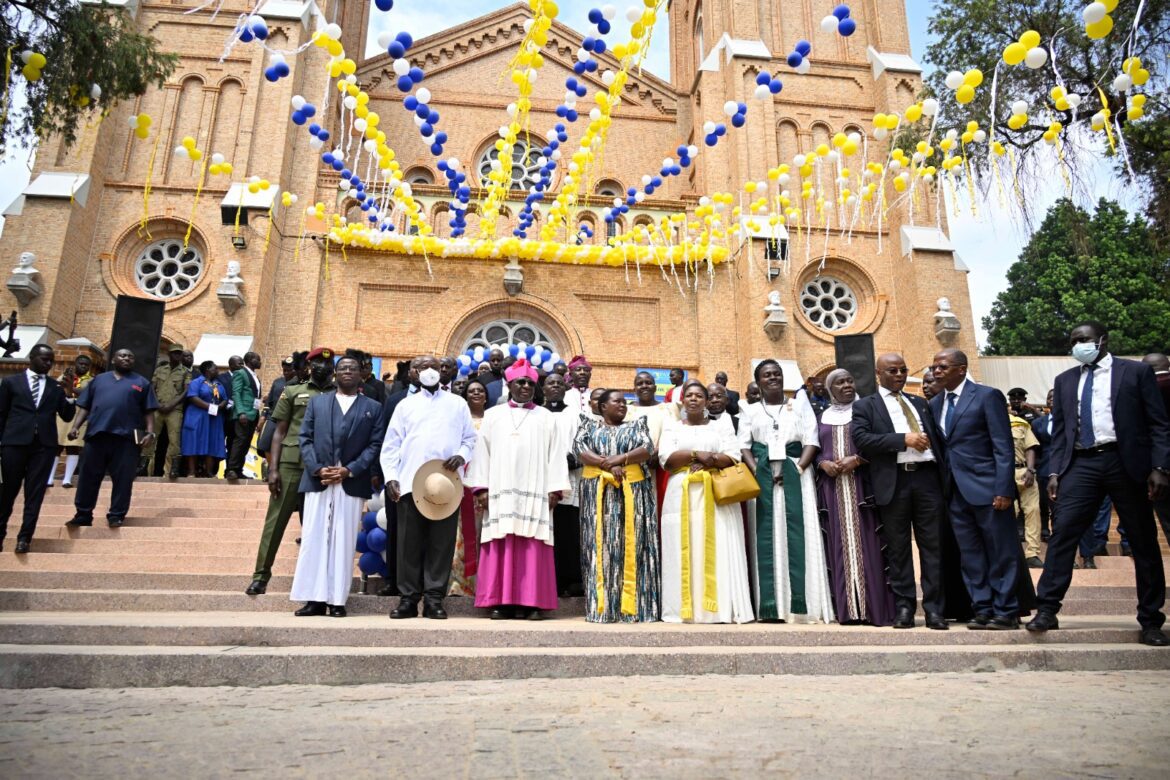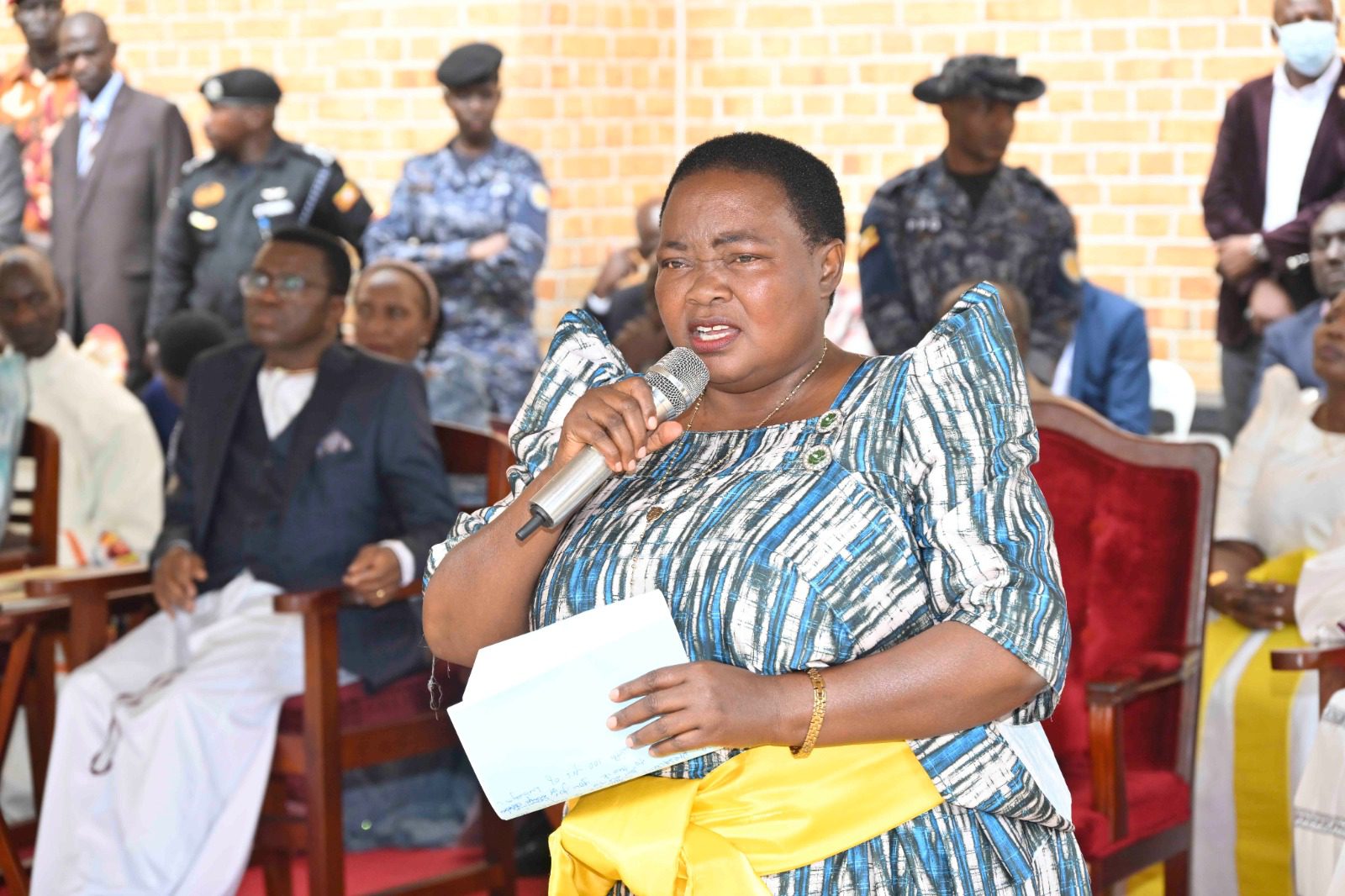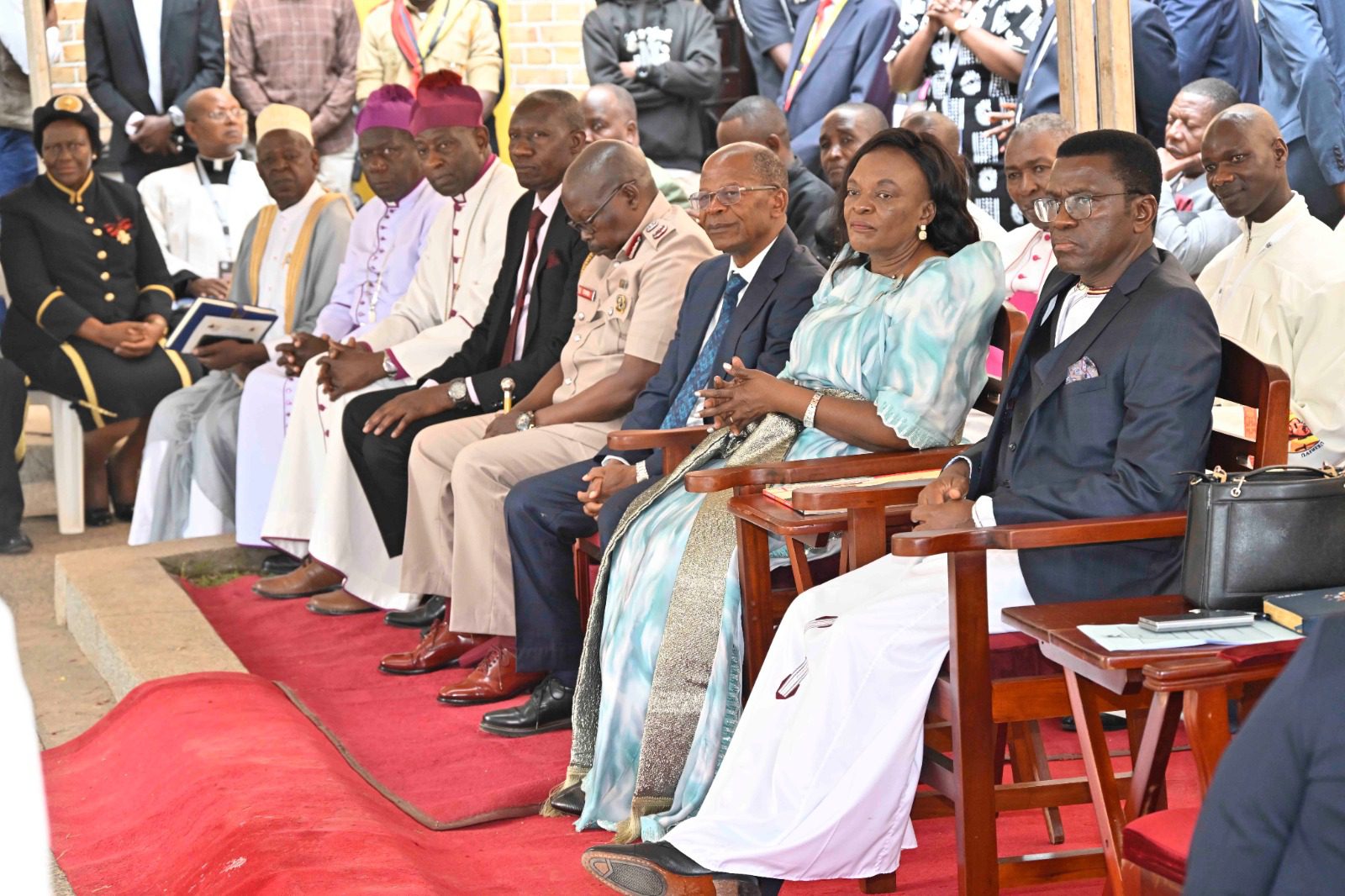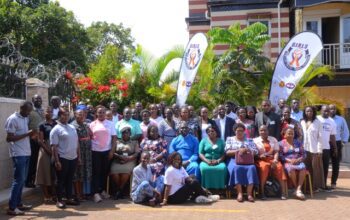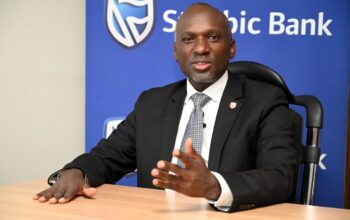President Yoweri Kaguta Museveni has challenged congregants at St. Mary’s Cathedral Lubaga to take seriously the examples from the parable of talents and St Paul’s Thessalonians message on hard work, provision and community support.
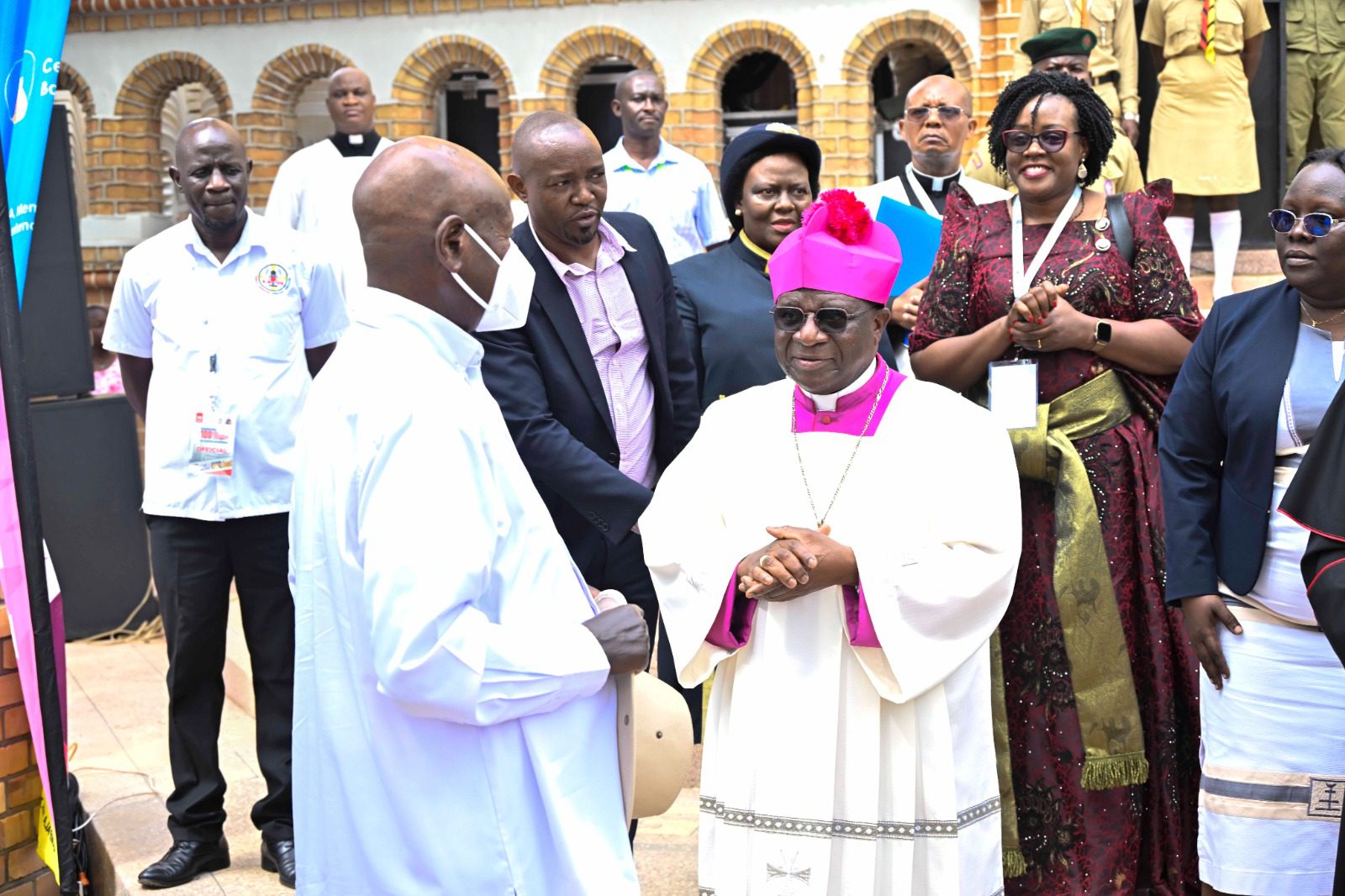
“I call upon you all to concentrate more on the parable of talents and the message of St Paul; whoever does not work, will not eat. My challenge to you, therefore, is to work so you get out of poverty, that you may support the church, the state and your families; this is the message I and the NRM concur with. It is the best Christian Doctrine besides one that says love your neighbor as you love yourself.”
President Museveni made the remarks during the Cathedral’s Centenary Celebrations at Lubaga hill, Kampala.
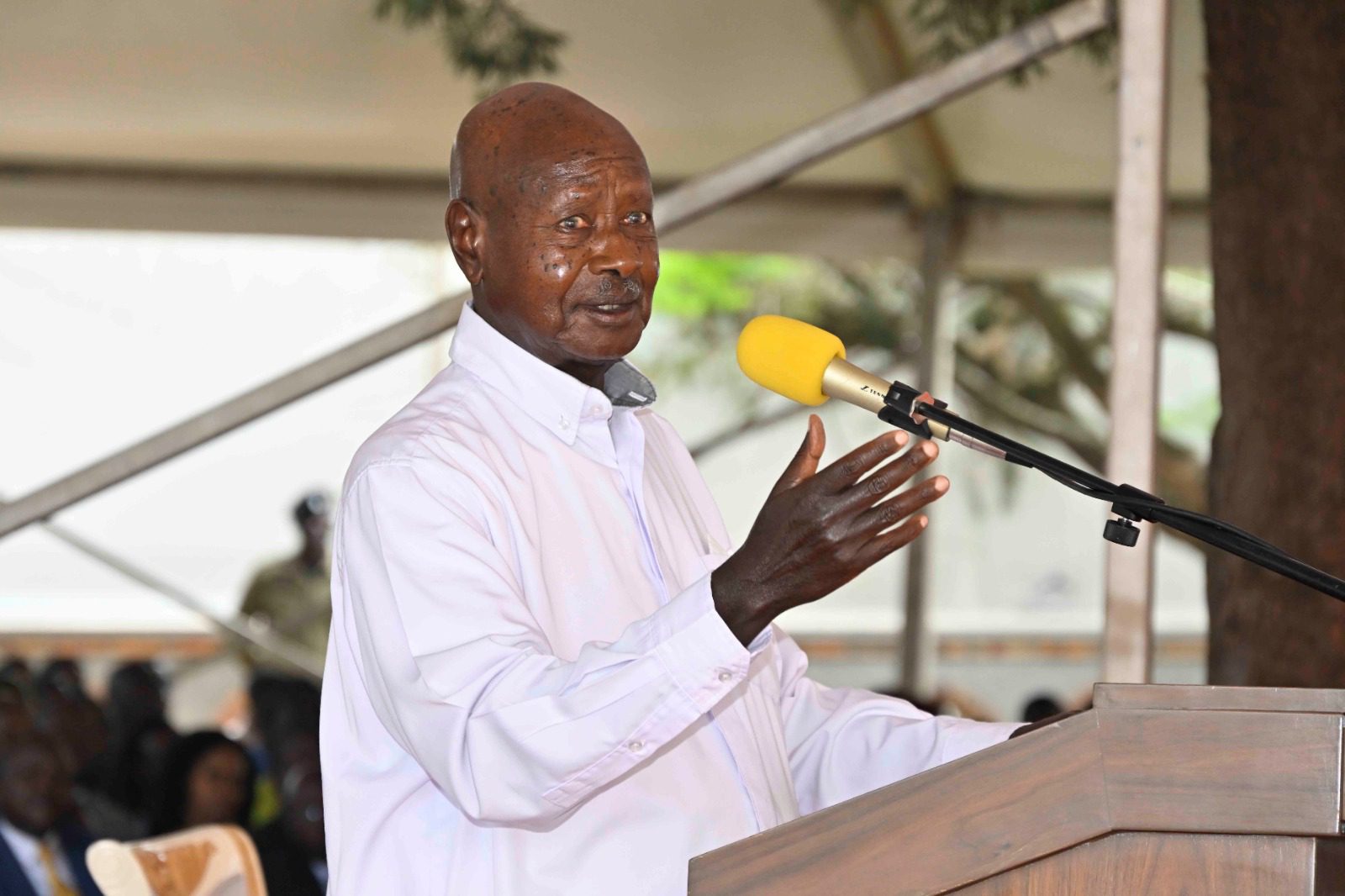
The event attracted over 5,000 worshipers, preceded by a Holy Mass at 10:00 am, led by Kampala’s Archbishop Paul Ssemwogerere.
Also present were government dignitaries led by the Prime Minister, Rt. Hon. Robinah Nabbanja, as well as top brass from the Mengo kingdom led by the Premier, Owek. Charles Peter Mayiga.
Also present were the Apostolic Nuncio, Archbishop Augustine Kasujja and all the Bishops of the Kampala Archdiocese.
The President, also while using the parable of the good Samaritan, called for unity among Ugandans, urging that the NRM’s message is premised on the pillar of interest rather than identity.
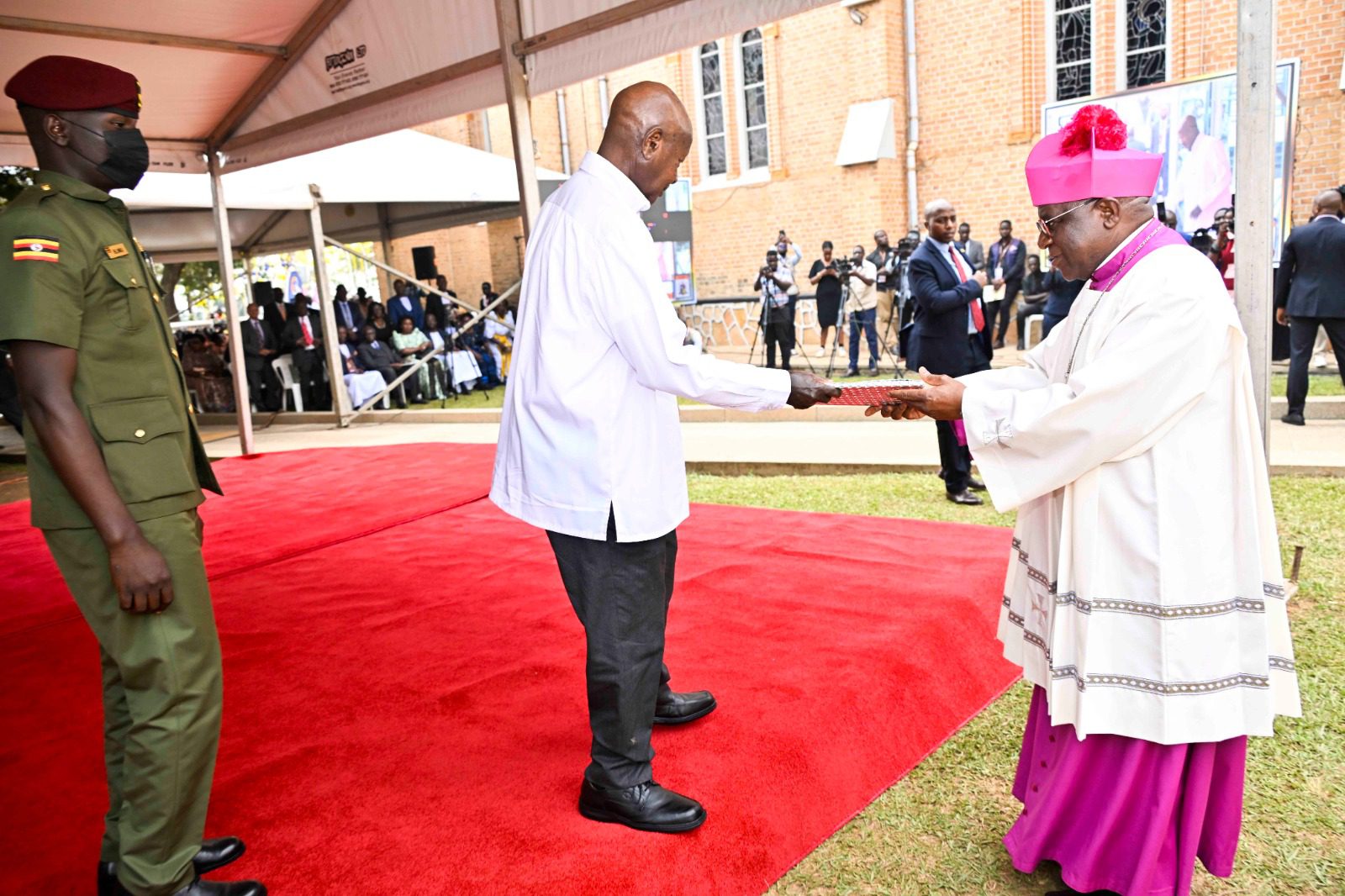
According to the Parable of the Good Samaritan, a man was robbed, beaten and left for dead; he was not helped by a priest and Levite but by another passerby, a Samaritan who was a member of a disliked group by the jews.
“We shall know them by their fruits,” President Museveni quoted, adding that, “In the NRM, we do not care about who but what the person has done. Just like the bible says, let your light shine before men, that they may see your works and glorify the Father who is in heaven. We therefore need to be real Christians guided by this parable.”
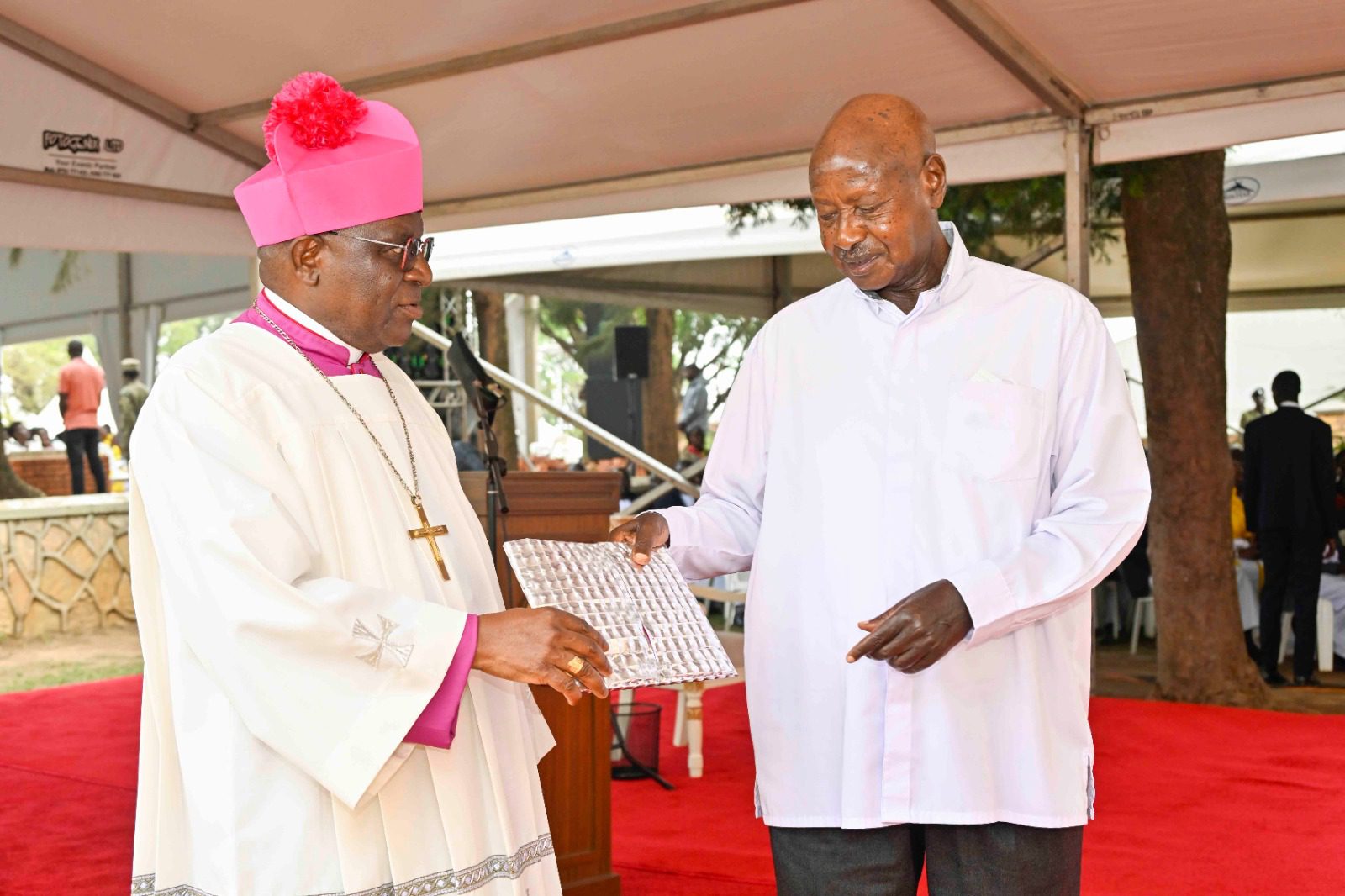
Speaking at the same event, Archbishop Ssemogerere thanked the President for continuously standing in solidarity with the church, urging that it is a testimony that faith remains a “pillar in building our nation”.
“We thank you for the collaborations in education and health. Many of our schools and hospitals continue to save lives and serve our people because of the environment your government provides. We also thank you for honouring this occasion and recognizing the role of the church,” the Archbishop said.
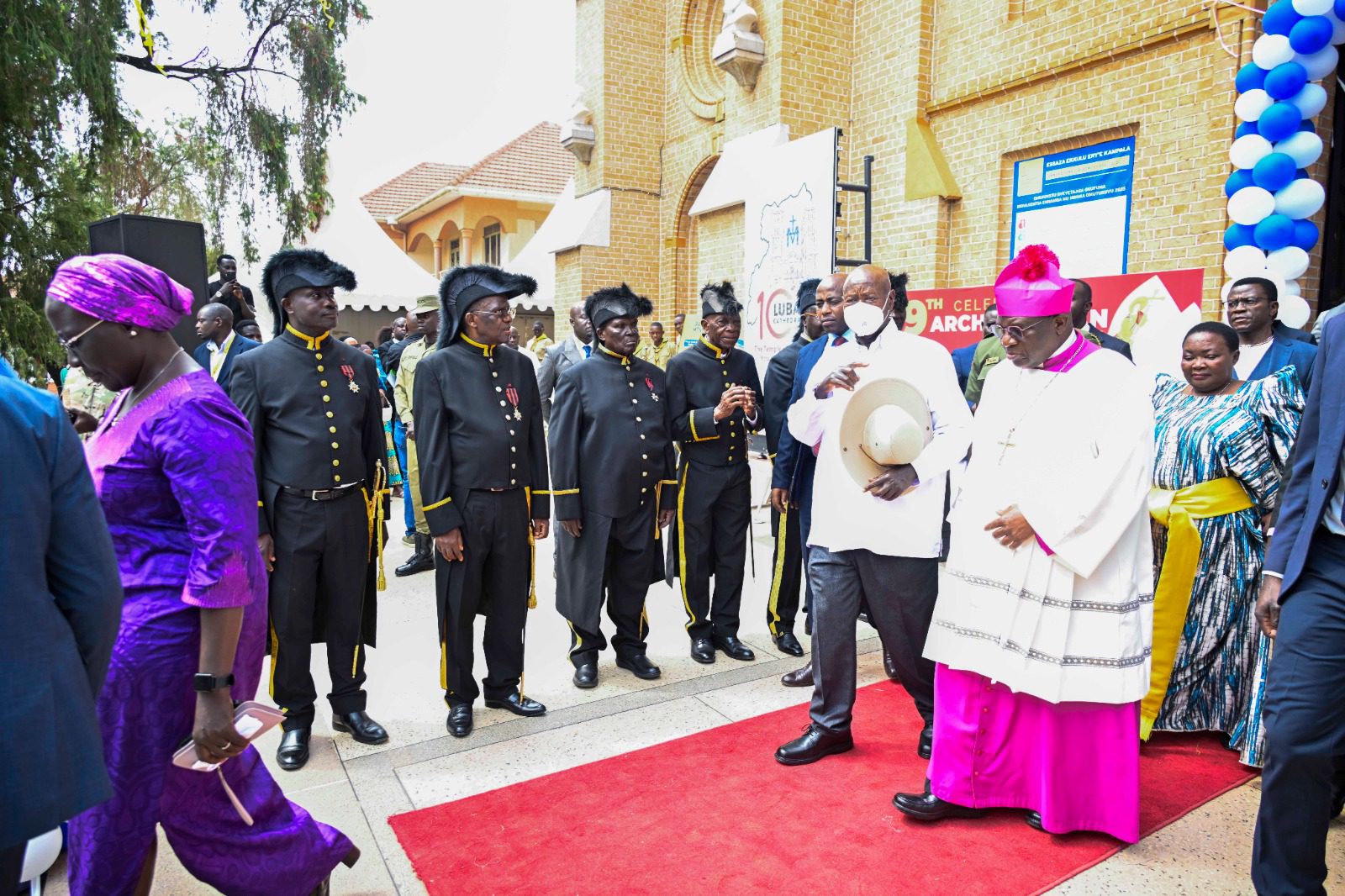
He prayed for the nation for peace to prevail in the election season, and called upon the youth to use their energy to build rather than break the country.
The archbishop also cautioned leaders to inspire unity and love for God and the country.
He appealed to the government to make swift interventions in the issues of land grabbing, which he says have plagued the country.
“We draw your attention to concerns in our country regarding land grabbing. We appeal to your continued leadership and interventions so that this issue can be addressed firmly and justly,” he said.
The Cathedral was constructed in 1925 through a community effort, 48 years following the arrival of the Catholic Missionaries.
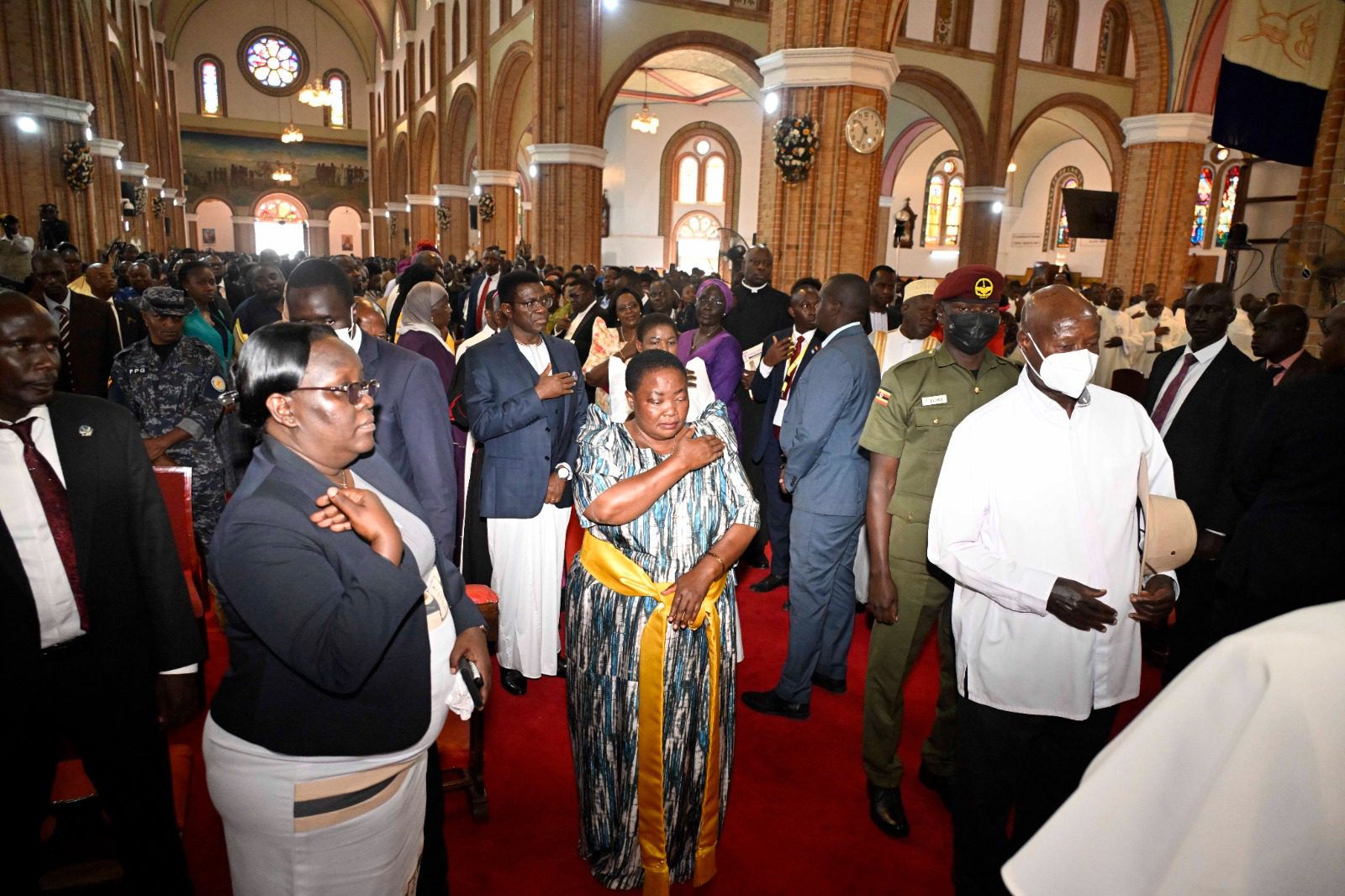
Bishop Henri Streicher and Brother Cyprian oversaw the work, including training local craftsmen at a skilling centre in Kasubi.
The land on which the Cathedral was built was a generous offer from Kabaka Mwanga II to French Catholic Missionaries, also known as White Fathers.
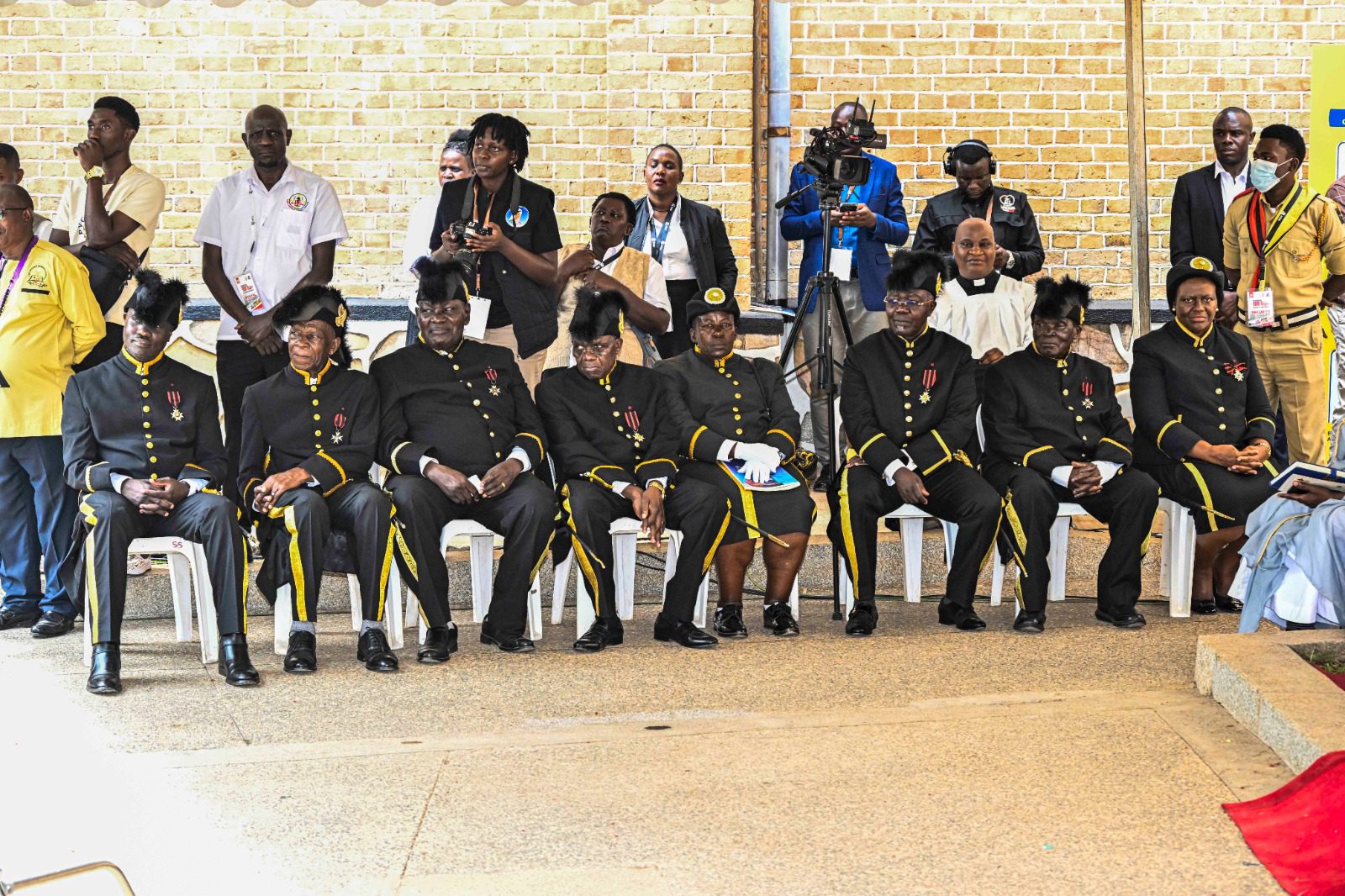
It was originally hosting a palace belonging to Kabaka Mutesa I but was abandoned after fires razed the place.
Towering on 24 pillars, the religious marvel put together by over 2.5 million locally made bricks also has a historic relevance, having hosted the African Bishops Synod in 1969.
